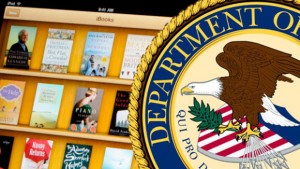This month, Federal District Judge Denise Cote ruled that Apple Inc. was guilty of collusion and of fixing the price of e-books.
The gist of the case is this: At the time Apple entered the e-book market, Amazon held a 90% share of the market and sold e-books for $9.99. After Apple entered the e-book market, Amazon’s market share fell, as did prices of e-books. If you are perplexed in trying to understand how Apple fell afoul of the antitrust brigades for lowering prices to consumers, the key point to grasp is that the federal government is not the friend and defender of the consumer, as popular mythology would have it. The Apple case is not an aberration. Uncle Sam has been a chronic thorn in the consumer’s side, intervening to raise consumer prices in a variety of ways.
Besides using antitrust law to punish companies like Apple for benefiting consumers, the notion that the federal government is the consumer’s friend has been disproved through a variety of other policies.
Tariffs, for example, force buyers to pay more than the lowest possible price. (They also tend to cause a net increase in domestic unemployment, but that’s another story.)
A goodly portion of the myriad government taxes on businesses and their employees results in higher prices to consumers.
Agricultural price supports—paid for by federal taxpayers—keep various foodstuffs artificially expensive. (Then the government further punishes consumers by taxing them to pay for food stamps for lower-income Americans who are having a hard time affording federally jacked-up food prices).
Overkill in the field of federal regulation, like overt taxes on businesses, inflates consumer prices.
Speaking of inflated prices, the federal government, through its nominally independent but fundamentally political, congressionally created central bank, has been driving up consumer prices for the last century by watering down the purchasing power of the monetary unit by inflating the supply thereof.
In fact, the history of the dollar illustrates better than anything else the hypocrisy of interventionist politicians claiming to be the friends of consumers and the champions of fairer or more beneficial economic conditions. As I ask my Econ 101 students every semester, have cars, cellphones, and computers been getting better or worse? Answer: Better. Why? Because consumers prefer good stuff over garbage, so businesses need to outdo their competitors in providing more value to consumers.
Next question: Has the quality of the U.S. dollar been improving over time? Answer: No, it has failed to perform one of the essential functions of money—serving as a reliable store of value—having lost over 95% of its purchasing power since the Federal Reserve was put in control of the dollar. Why have cars, computers, cellphones, etc., been getting better while the most important (because it is the most used) consumer good—money—has been deteriorating? Answer: Consumers have been denied freedom of choice by the government-imposed Federal Reserve monopoly over money.
Conclusion: Instead of prosecuting and persecuting private businesses for their successes in serving consumers, the government should get the beam out of its own eye. If government really wants to lower the cost of living for us, it should abolish antitrust laws, eliminate tariffs and taxes on businesses, let free market competition determine prices, and end legal tender laws so as to introduce competition and freedom of choice into the market for money.
We are a long way from such a rational policy regime when we have federal judges condemning Apple for lowering prices and complain that Apple had the audacity to “not want to begin a business in which it would sustain losses.” It’s the government that consumers need to beware of, not private businesses that earn profits as they drive consumer prices lower.
. . . . . . . . . . . .
Mark Hendrickson is a contributor to Forbes magazine.
